Description
Now I know there are video tutorials however sometimes it's cool to have a text/image based walkthrough which can be printed too.
One of the first things you may want to do when you get your EZ-B V4 is to change how it connects. By default it acts as an access point which your PC or Mobile device will connect to. That's fine for some however I plan to have mine online and connected to my home network.
In order to change...
Related Robot Skills
Step 1
Now I know there are video tutorials however sometimes it's cool to have a text/image based walkthrough which can be printed too.
One of the first things you may want to do when you get your EZ-B V4 is to change how it connects. By default it acts as an access point which your PC or Mobile device will connect to. That's fine for some however I plan to have mine online and connected to my home network.
In order to change this you will need to connect to your EZ-B V4 while it is in "WiFi AP Mode". To do this is very easy. First power up the EZ-B V4. The EZ-B will be transmitting a wireless network named "EZ-B v4 2E" (where 2E is a unique number, mine just happens to be 2E, yours may be something different) so with your WiFi enabled PC or mobile device connect to this Wireless network. It is an open network by default so there should be no need to enter any passwords or codes.
Once connected the EZ-B V4 open up your web browser and enter the URL of 192.168.1.1 (you can access this through ARC also which I will cover later however I find this method allows you to skip the step of opening EZ-Builder).
Once you enter the URL you are greeted with the following page;
Ignore my IP and the information the page gives about being client, I had already changed mine to Client modeOnce in here you can change the settings. First click on the button on the left labelled "Wi-Fi Client Mode"
You should then get this page;
Now enter your SSID and password. Note, these are CaSe SeNsItIve!
Now click on Connect.
The EZ-B V4 should make some noise and reboot itself. It's advised you power cycle once changing from adhoc to client (and vice versa).
The message should then play the default "Welcome to the EZ-Robot revolution..." message followed by "I have connected to the network".
Once that is done, fire up EZ-Builder.
EZ-Builder has a built in IP finder, click on the icon as highlighted below;
A new dialogue should pop up;
Now select the range you want to scan;
And click Start;
Scanning should start, as indicated at the bottom of the dialogue;
After a while it should have found all EZ-B V4s and listed them;
Simply click on the one you wish to use then click select;
The connection dialogue should be auto updated;
Hit connect;
It should then connect to the EZ-B;
Now add your controls as you would have before (or if you are new, just check the other tutorials).
As mentioned earlier, you can access the EZ-B V4 config through ARC also, this is done by clicking on the highlighted icon below (provided the IP to the left of it is the IP of your EZ-B V4).
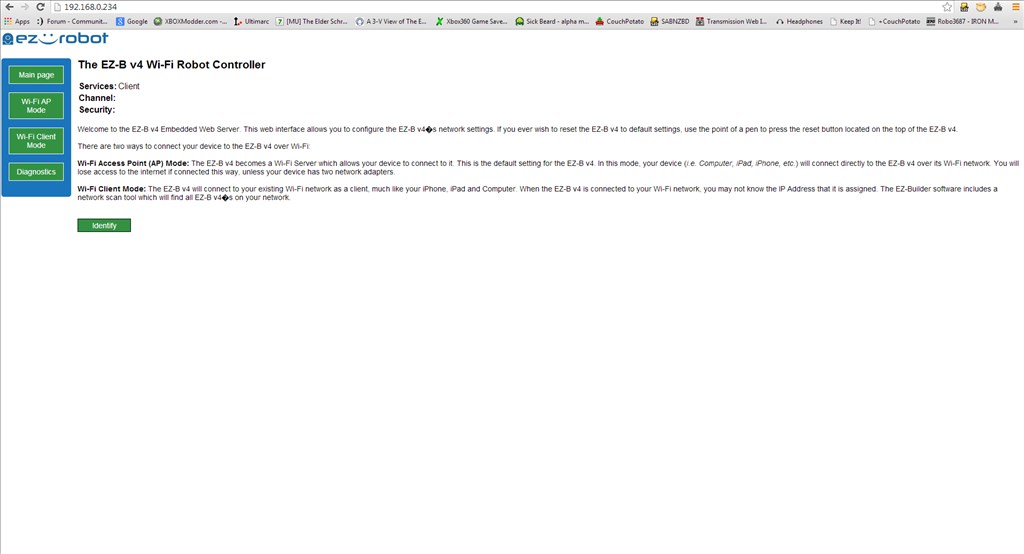
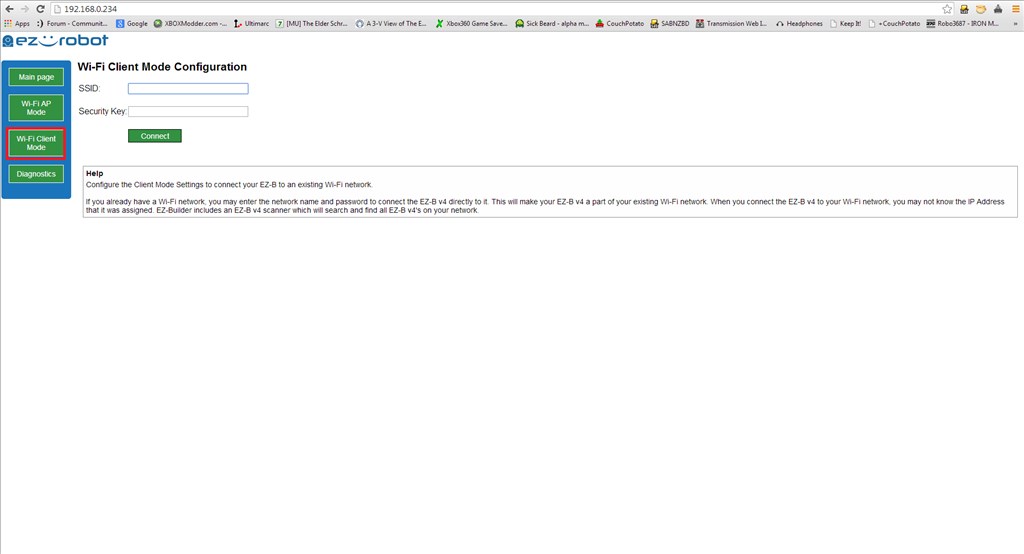
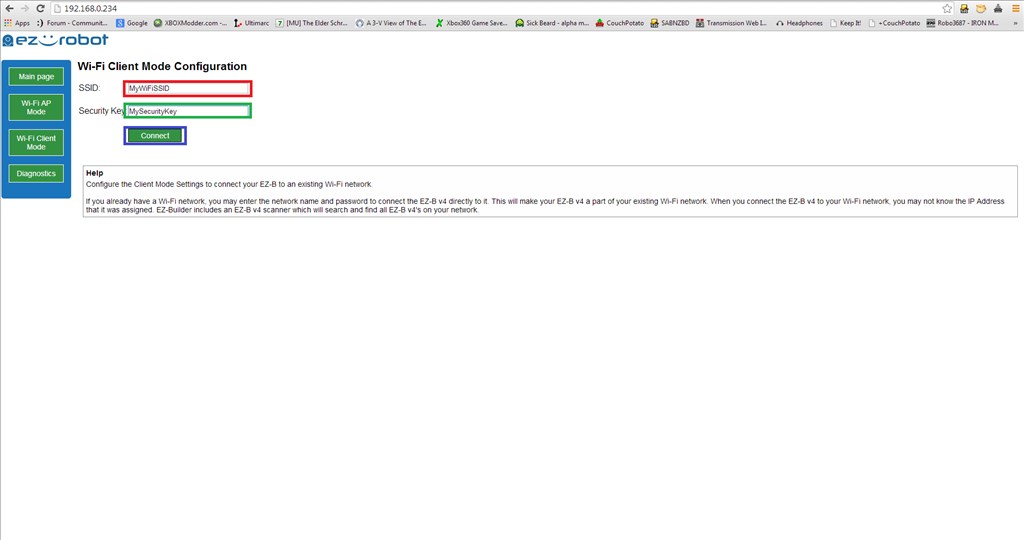
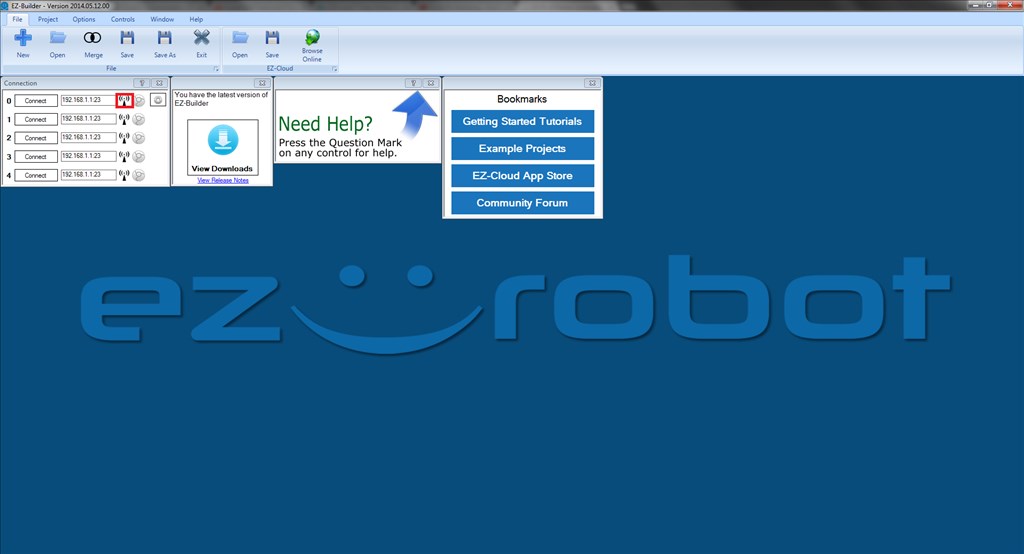
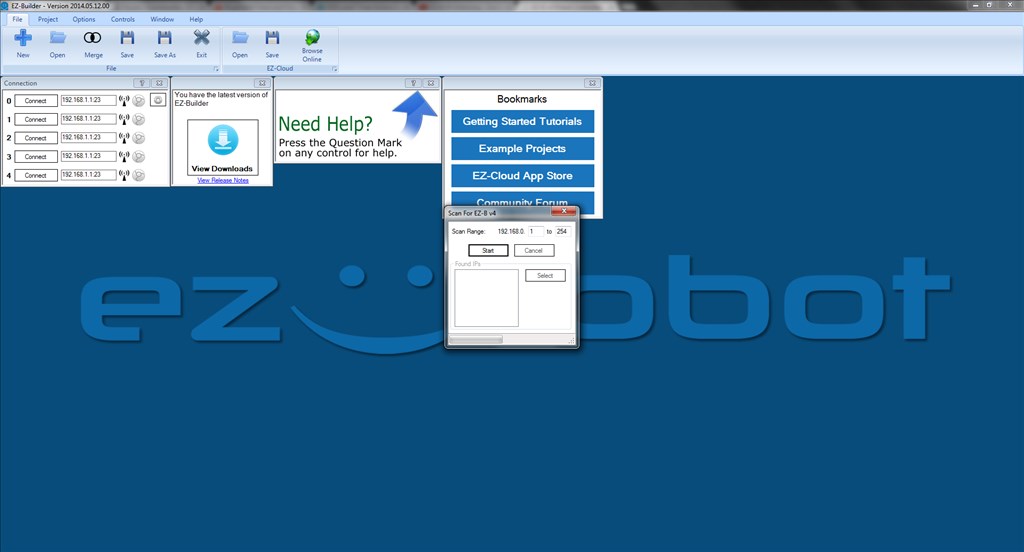
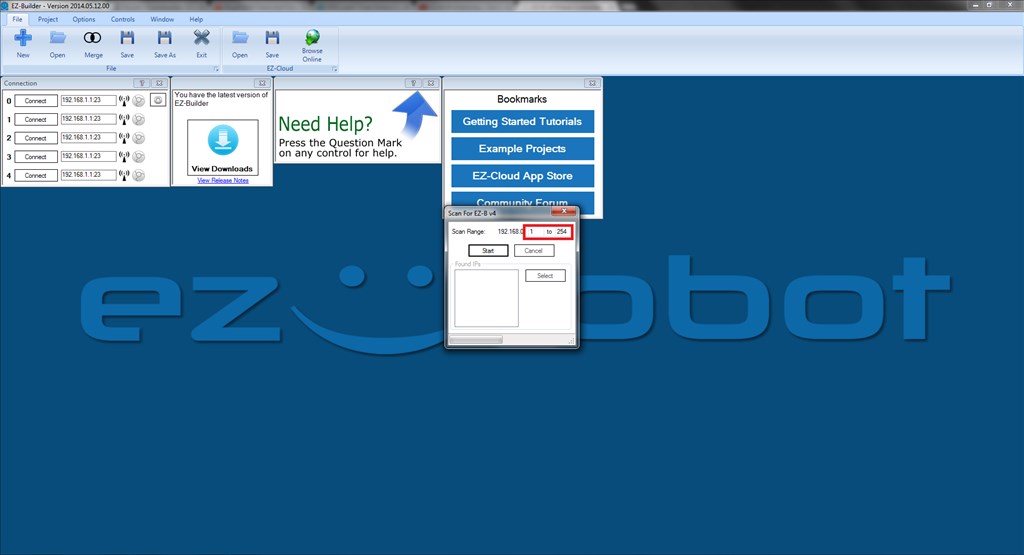
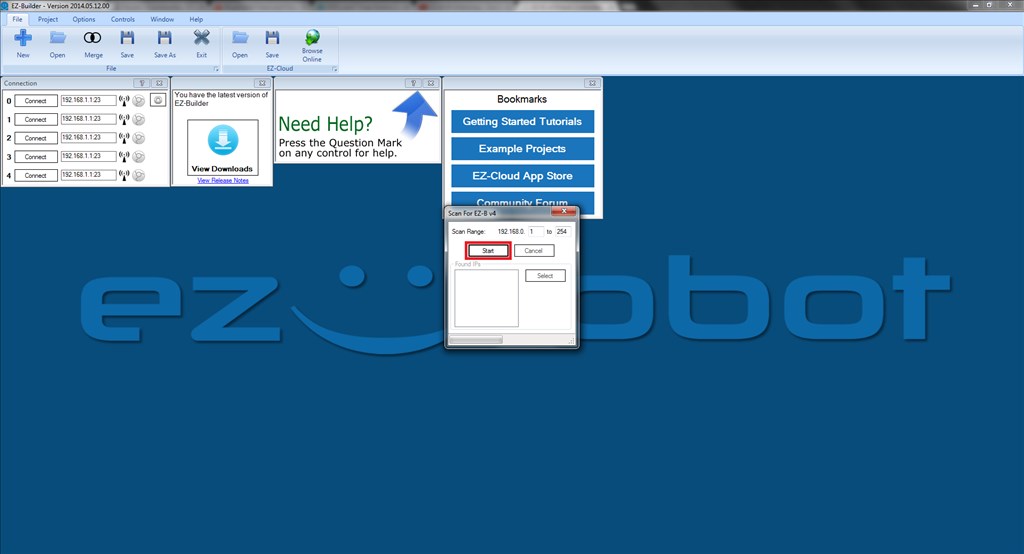
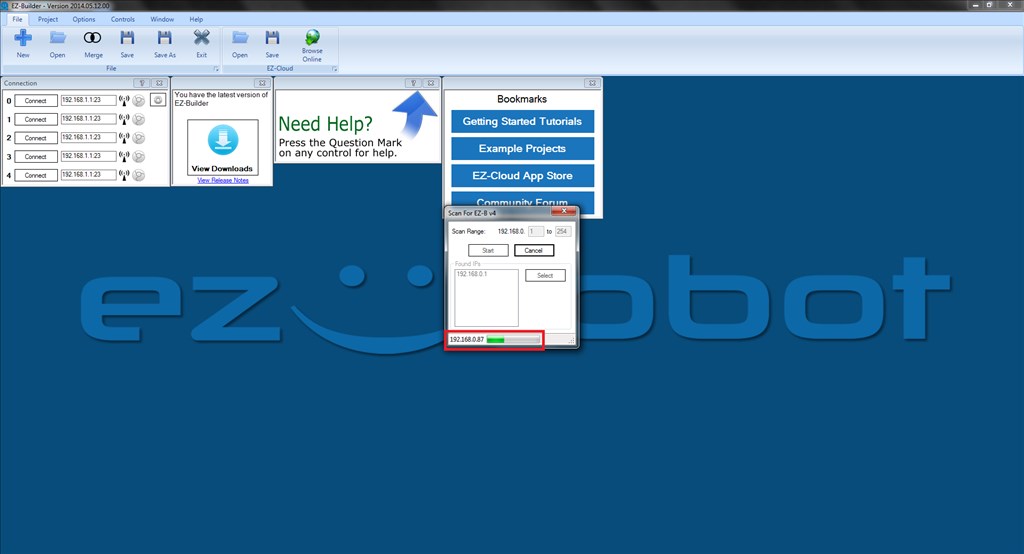
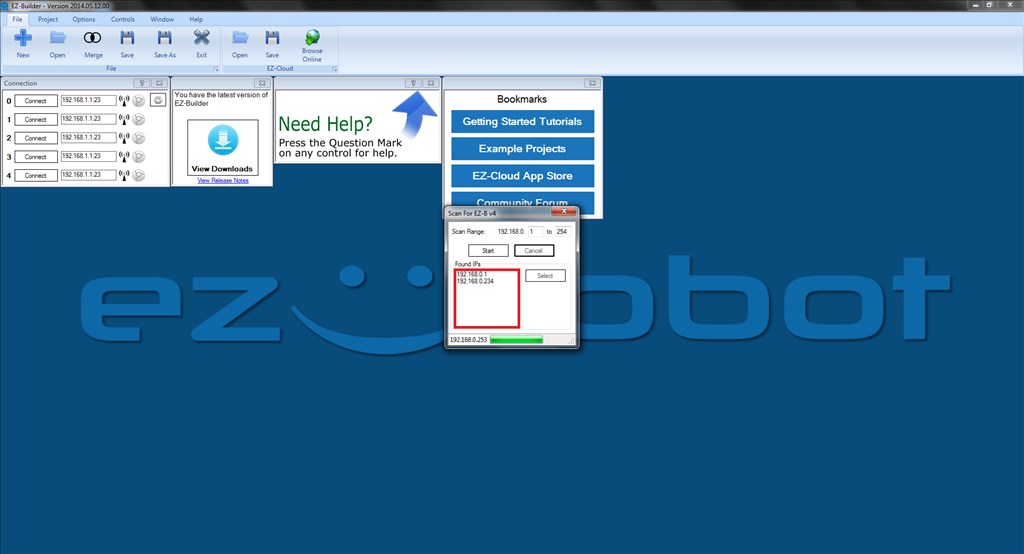
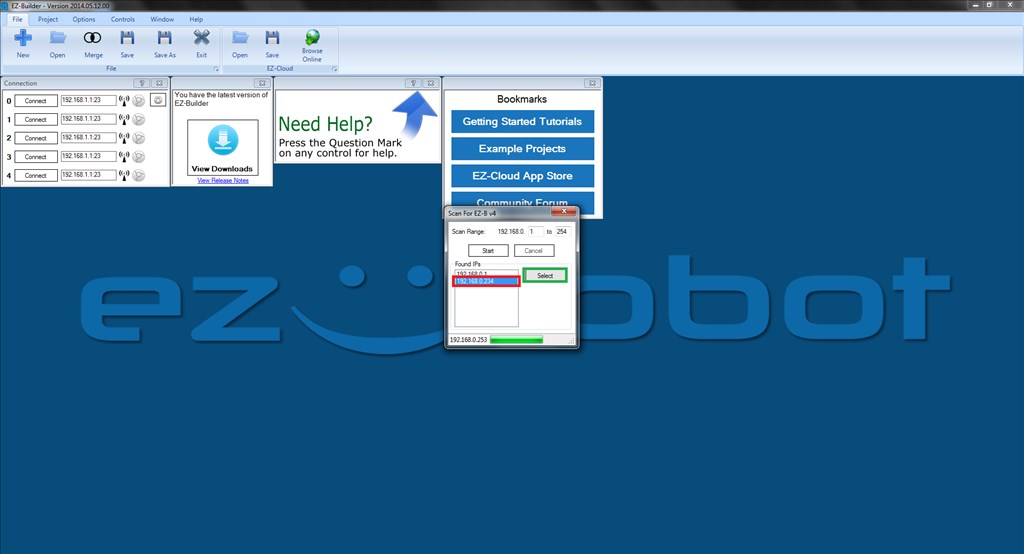
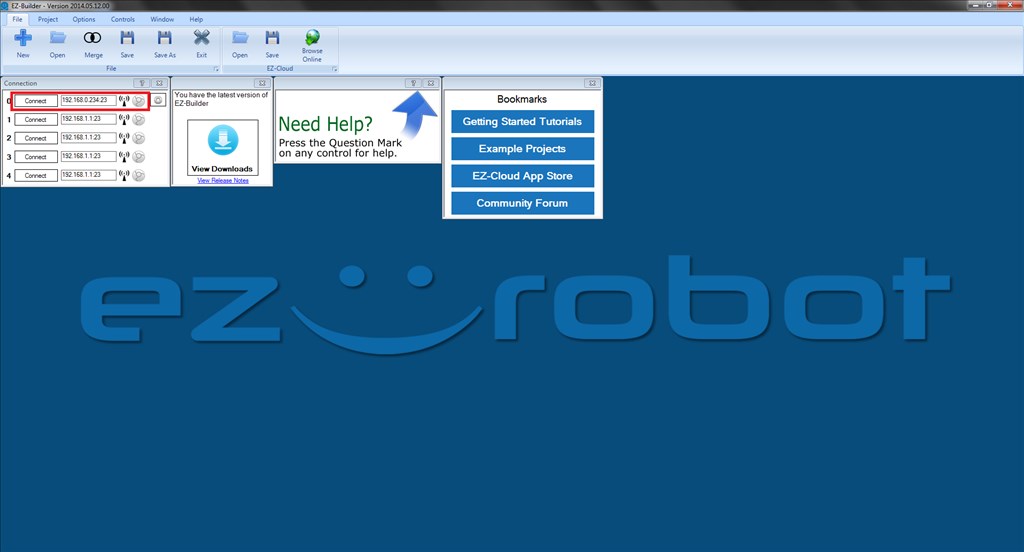
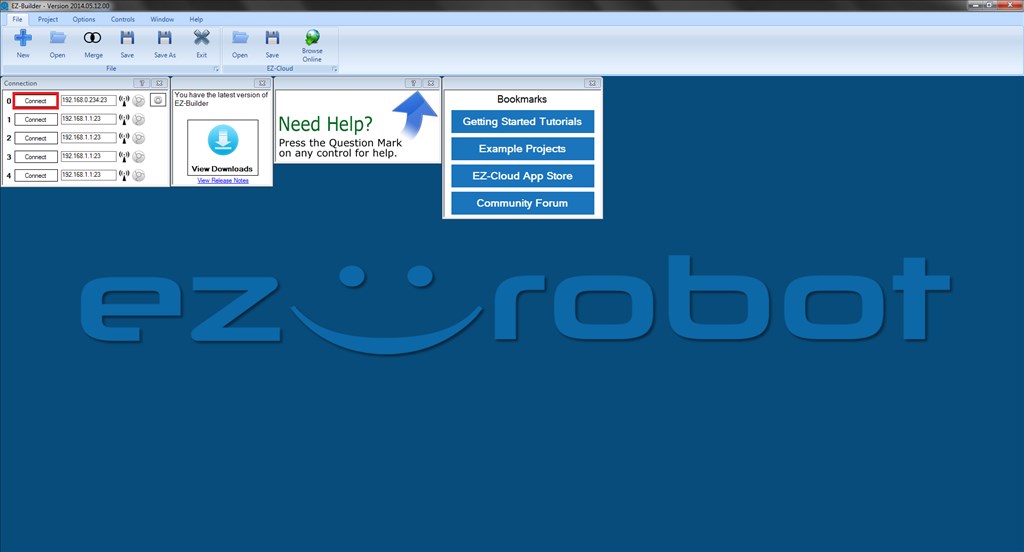
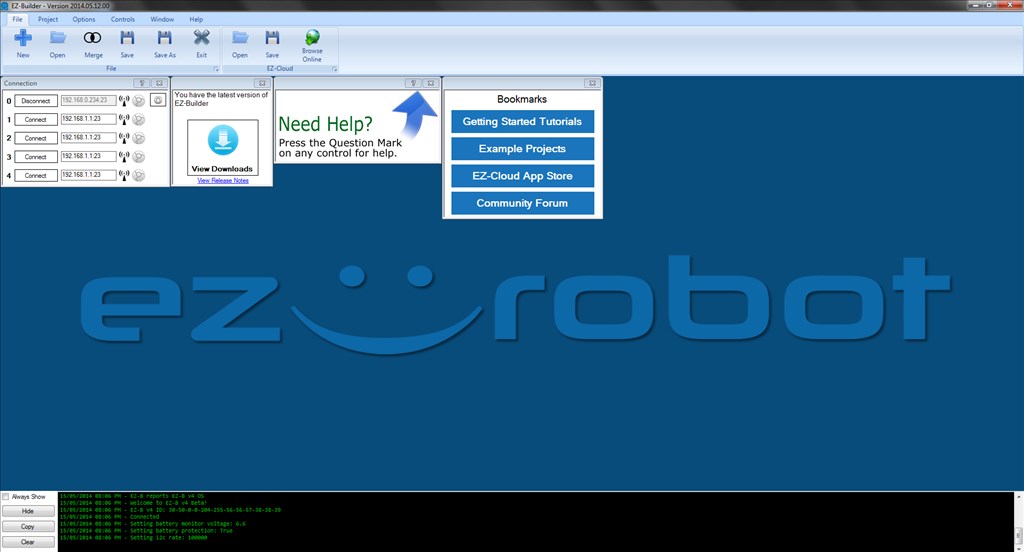
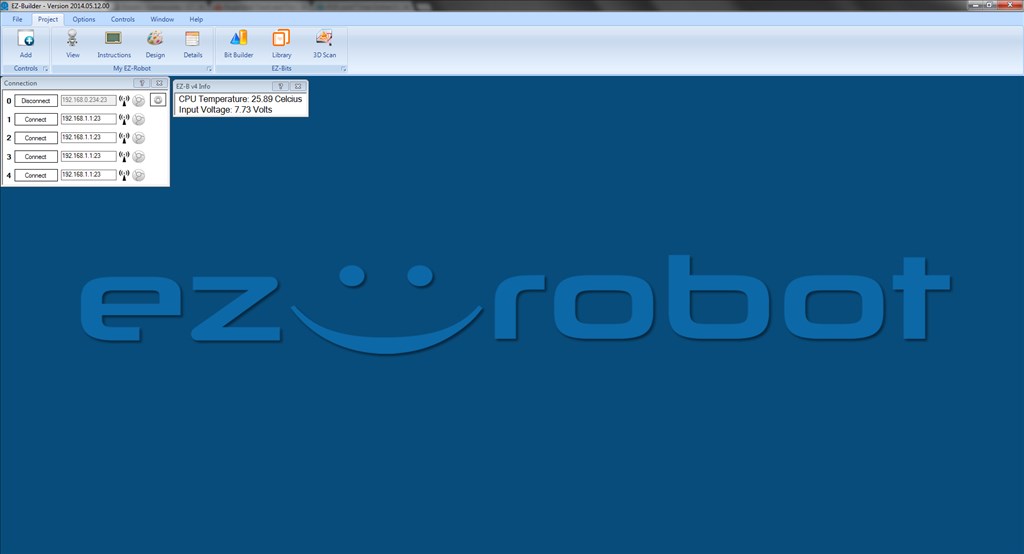
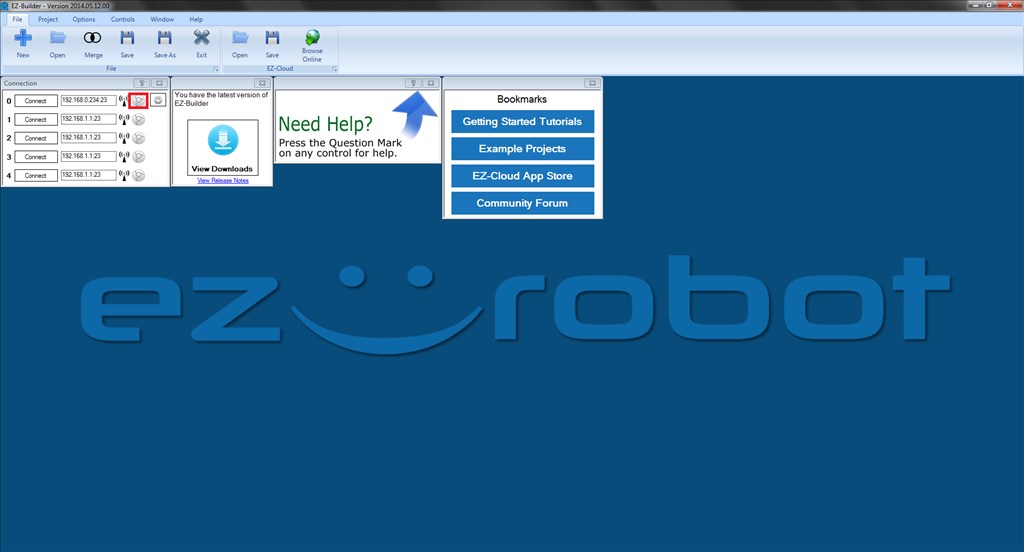

Super helpfu! Thanks! Infinitely better than the EZ-Robot outdated video tutorial.
Dicka, I believe you may be referring to some videos you found randomly on the internet. Ezrobot has created a video series The Robot Program that has updated and educational content. I highly recommend clicking the robot program and using those video resources to get started with ezrobot products.
The video I was looking at is the one on The Robot Program, Connecting and Trouble Shooting. I downloaded and ran ARC as described, but the Network window did not come up, and that's when I looked further and found the above excellent tutorial.